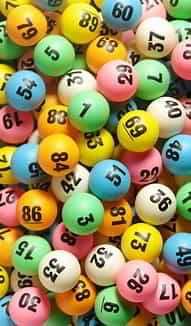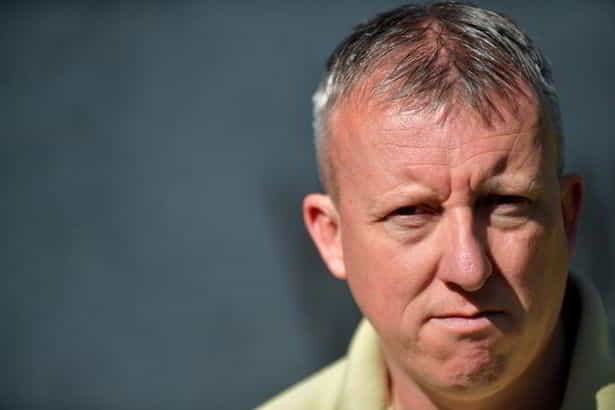GamblingDrive
Gambling - when you just can’t stop
Gambling is a human habit that can , like smoking and alcohol, have severe consequences on your own life and your family, work, and social life...
Gambling becomes additive and the more we get hooked the worse it becomes..
Gambling is similar to smoking, drugs or alcohol but not quite the same, as gamblers can become winners – there are many gamblers who have been lucky enough to keep winning and winning. Also, today tobacco and alcohol companies are restricted with their marketing whereas gambling organisations are not.
Here are some initial thoughts about gambling. GO!
Here are some initial thoughts about gambling. GO!
Have a look at the size of the gambling market! GO!
See what people think as against the truth. GO!
Understand how smart and sophisticated the gambling industry is. GO!
See some real life examples. GO!
If you’re a visitor to our site you can join and download information, assess your own health and create your own action plans, and even contribute to our site. GO!
See what you can do next.. GO!
We have some additional information and stuff on this subject. GO!
Some Initial Thoughts

My way out....
Have you ever thought – why do they have a rollover and the jackpot is a crazy sum such as £50 million? You might be a logical thinker and think hang on why not have 50 x £1 million winners instead? Surely more winners encourage more people to gamble.
I am afraid that’s not what happens – when a rollover occurs the sum is higher which encourages people to buy more tickets because the reward is bigger. Often gamblers are people that don’t have more than a week’s money in savings.
In the UK the average family do not have more than a month’s savings for emergencies in their bank. Personal indebtedness is at its highest levels in the UK and now we have this instant coffee culture of wanting to fix something with a magic pill – look at physical health. We don’t want to kill ourselves down the gym going through the pain barrier when we can cut down food intake and take pills to suppress our appetite or pills that burn fat.
Mental health’s magic pill is to take antidepressants that make you forget temporarily, but this does not fix the problem.
Gambling’s magic pill is to keep gambling and try to gamble your way out of debt; this next bet will be it, I can feel it. Surely my luck has to change sometime!!
Facts About Gambling
All these facts are from the Gambling Commission.
(GGY) April 2019 to March 2020
in year to March 2022, overall participation in any gambling activity (in the last four weeks) significantly increased to 43% (an increase of 3 percentage points on year to March 2021) but does remain lower than the pre-pandemic participation rate (47% in Year to March 2020)
£6.9 billion Total GGY for Remote Betting, Bingo & Casino Sector (April 2020 – March 2021)
(18.4% increase from April 2019 – March 2020)
in year to March 2022, the in-person gambling participation rate increased to 26% (from 23% in year to March 2021) showing some signs of recovery since the pandemic.
Of the £6.9 billion, online casino games dominate the sector, generating £4.0 billion in GGY, £2.9 billion of which was from slots games
the proportion of past 12 month gamblers who agree that gambling is conducted fairly and can be trusted has significantly increased from 32% to 36% in year to Dec 21. Agreement is stable amongst the general population at 30%
£1.7 billion Primary Contributions (to good causes) from The National Lottery (April 2020 – March 2021)
(4.0% increase from April 2019 – March 2020)
significantly fewer respondents in year to Dec 21 agreed that ‘gambling is dangerous for family life’ (70%) compared to 75% in the previous year (year to Dec 2020)

The Gambling Market
Let’s take a look at the size of the market in 2020 to prove that gambling does not pay:
- Total gambling market in the UK is £14.4 bn
- Internet based gambling is worth £5.3 bn
- Slots machines we spend £2.1 bn
- We spend on the national lottery £1.5 bn
- We spend on local society lottery £332 m
- We spend visiting casinos £1.1 bn
- There are over 102,782 people employed in the UK in gambling
Now let’s take a look at some of the gambling hard facts which are staggering
- 46% of Brits have gambled in some way in the last 4 weeks [Statistics]
- Before March this year 800,000 UK residents gambled using their credit card
- There are estimated to be 24 million gamblers in the UK in 2020
- The total UK debt on credit cards is £72 billion the average interest rate in a credit card is 20.77%
Who gambles?
- A gaming machine generates an average of £52,887 a year, according to the figures, about twice the national average wage. KPMG survey for ABB
- Over half (56%) of online gamblers were registered online with more than one account, and 20% of those aged 18-24 had more than five online accounts.
- 51% of men gamble in any comparison to women 43%
- Typically, the biggest gamblers are 35-54 with 53% having gambled in the past four weeks
- 7% of gamblers said they did so as a way to “earn money to get by day-to-day

Myths and Fantasy
The gambling industry is based on psychology, statistics and technology. The industry employs the best marketeers to persuade you to spend and they have very powerful big data systems that measure every angle possible to ensure you lose the majority of your money. The deploy the best developers to ensure you are teased to win and not lose every time. The software is designed to lull you into gambling more and more and then lose it all. They design the systems to not totally empty your bank but encourage you with small wins and to keep you gambling thinking the next bet will be a big win when I reality it’s like the lottery and your chances of winning are minuscule.
35.3% of sports betters consider they are profitable with younger betters 58.5% believing they were more profitable.
Residents in Welsh local authority Rhondda Cynon Taf who mix recyclables in with their residual waste can also face a £100 on-the-spot fine.”
It’s not unusual for people to think they are profitable bettors when in fact they are not; psychologically you remember your wins more than you remember your losses. However, it’s the sheer number of people that think they are profitable — a massively unrealistic quantity — that no doubt spurs bookmakers and casinos, and broadcasters and the media as a by-product, to push gambling adverts in the faces of spectators anywhere they turn.
According to research though only 7.8% have ever been restricted or banned by a bookmaker:
Beating Betting said: As a site with years of experience in the industry, we can assure you that almost all profitable bettors (long-term) are banned or restricted in terms of stakes and access to promotions. Large bookmakers like Skybet claim to have only restricted 2-3% of their customer base — nowhere near this 35.3% supposed ‘winner’ percentage.

A smart sophisticated industry
We mentioned that gambling is addictive like alcohol and smoking. The latter industries have been contained with promotions most people really know that smoking and excessive drinking is bad for you. Whereas the gambling industry does have the odd winners and we are living a world now whereby people want to get rich quick solutions..
The reality is that nearly 10% of the UK society are addicted to gambling to the point that it impacts on their financial health. We know that this vicious circle soon impacts on mental health and physical health.
Many people who don’t understand will say well just stop its simple the facts are there that you cannot win the bookmakers. But they say that about smoking, people know smoking can kill you but yet 17% of the UK population do it. By 2026 we also know 67% of the UK population will be classified as obese which in the longer-term increases risk of type 2 diabetes and heart disease and longevity of life but yet we still get fatter and cannot resist food.
Click the infographic below to see whether UK sport has a gambling problem:

Examples of people with gambling problems
Nick Phillips lost £250,000
In this article on Wales Online Nick explains how his gambling addiction cost him his home and drove him to attempt suicide twice.
He started playing fruit machines in his snooker club 25 years ago and then spent his Saturdays in the bookies, socialising with friends and betting on horse racing and football.
You can read the full article.
Reddit have a thread on gambling problems, showing how it becomes like an adrenaline rush and takes over people lives.
A US post on GamCare describes how a son discovered that his mother was addicted to gambling; she had been for seven years and he just didn’t know. Can you imagine how he felt when he eventually did find out, and also that she had been taking some of his money to gamble? It caused enormous self doubt and trust issues.
Justyn Rees Larcombe Interview
This is a Ted talk from Tunbridge Wells explaining his life and how he lost almost £1 million. It is 16 minutes long.
He also did an interview on ITV on Good Morning Britain in 2017.
The key message is – if you even think you have a problem – you MUST talk to someone about it.
Caan Berry has done a video showing how you can stop problem gambling behaviour.
This video lasts about 19 minutes but has some good points you can note if you think there’s a problem. It looks at addiction generally, and explains how a trader became addicted.
For visitors
Why don't you join us?
You can register to join us as a member, when you’ll be able to download our stuff and comment, or as a YouDriver when you’ll also be able to check your health and set up your own action plans to make some improvements. If you’ve already registered, sign in below. Or let us know what you think.
How To Stop Gambling: The 6 Stages Of Change
HOW TO STOP GAMBLING
This short video shows the six stages of change that you need to go through to stop gambling.

Next Steps
It doesn’t matter what stage you’re at – it’s important to be the best you can be. At the end of the day it’s about taking personal responsibility – You Drive!
It’s really your choice. You can find out more information about the subject, or see other institutions that can help by going to Support. There you will find organisations, training, coaching, self-help courses and other items to support your personal change. We have also started developing a panel of experts to provide info, advice, help and support.
Get Support
There are times when you need some help to meet your aims – a helping hand. That might be an organisation that can provide you with some help, some specialised information, a particular book or tool to help, or just getting some background reading material.
We have a lot of items which appear on our Drives and other pages, which you can go to by clicking on the picture or link. Some contain affiliate links and we may receive a tiny commission for purchases made through these links.
If you know of anything which could help you or our other visitors then please click the button on the right, which will take you to a Contacts page where you contact us.
Experts
We are compiling a list of experts who can provide advice, help or specialised services. You will be able to access these experts from anywhere on our site you see our ‘Experts’ symbol. Click the green E to see what our Experts list will look like, with a couple of imaginary ‘experts’ added!
More Information
Scroll down to see more information on this Drive.
If you register you can also download reports, white papers, quizzes and other collaterals. We will never ask you for any financial information, and we’ll only send you the information you want. You can register for our site either above or in the footer below. You can provide your own questions and experiences in order to help other members. We only moderate for spam and inflammatory language – see our moderation policy.
If you’ve found this interesting, then please share it on social media. Choose your network!
More information
Squares & Sharps, Suckers & Sharks
The Science, Psychology & Philosophy of Gambling
People have been gambling, in one form or another, for as long as history itself. Why? Money, entertainment, escape and a desire to win are all traditional explanations.
Might Bite
The Secret Life of a Gambling Addict
An electrifying account of gambling addiction … compelling’ The Times
‘Searingly honest … should be in the hands of anyone who has eyed a bet’Daily Mail
Casino Gambling For Dummies
(For Dummies Series) Paperback
Earn comps and avoid big losses
Bet wisely, beat the house, and bring home the bucks!
The Easy Way to Stop Gambling:
Take Control of Your Life (Allen Carr Easyway Series) (Allen Carr’s Easyway)
“READ THIS BOOK AND BECOME A HAPPY NONGAMBLER FOR THE REST OF YOUR LIFE Allen Carr’s Easyway is a global phenomenon. It has helped millions of smokers from all over the world.
GamCare offer support through a free phone line, online chat or face to face help. They also have a Cognitive Behavioural Therapy (CBT) online treatment course called GameChange.
LIke AA, Gamblers Anonymous is the support group where you chat to other compulsive gamblers and join up.
The Gambling Commission list all the areas where you can get support.


















